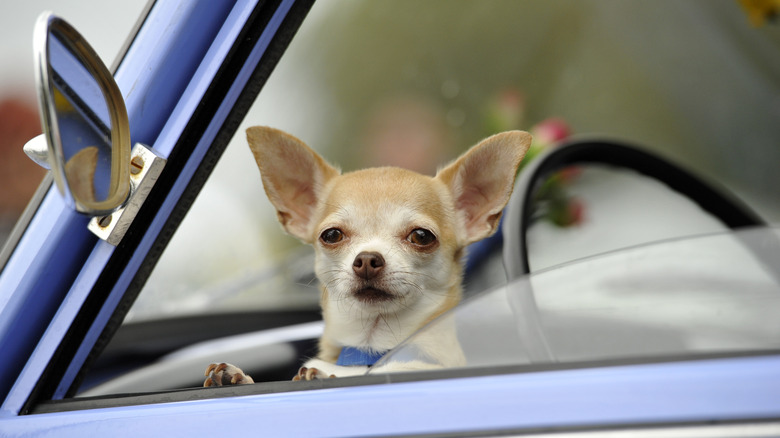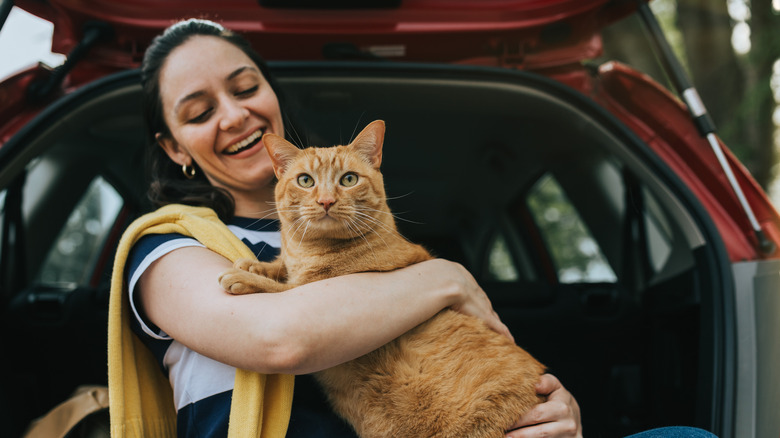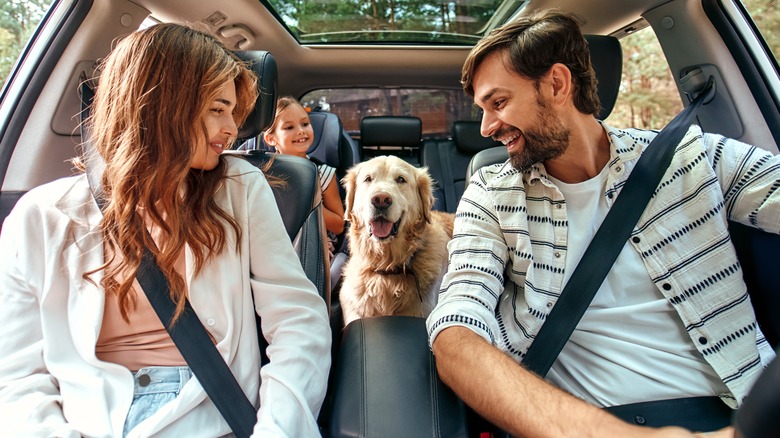Travel Guides Road Trips
Bernadette Roe
No one wants to get left behind on a road trip, and if you’re a furry friend, the same family energy applies. It’s one thing to travel with kids, which calls for a unique set of planning and packing strategies to make sure everyone’s happy. It’s another thing to plan for a pet, like when you’re road-tripping with your cat.
With so many sights to see and so many places to go, road trips are the perfect way to explore. And how can we resist, when there are so many epic rides to take around the world? But road trips are all about who’s in the car with you, and no matter where you go, this can be the real adventure. One of the best things about road trips is that you get to decide who comes along. There are no pet carrier restrictions, like on planes, and you can bring your furry family with you. But this also comes with serious planning, especially in regard to how they react to motion sickness and car anxiety. With pets as part of the trip, you’ll want to prepare with them in mind. Take them out on a drive beforehand to see how they do, and slowly introduce them to similar activities you’ll be doing when you get to your destination.
Take your pets for a test drive

Matthias Rietschel/Getty Images
Before you embark on a long road trip with your pet, take them for a test drive and see how they manage in the car. Drive for anywhere from two to four hours with your pet and observe how they do. Some dogs and cats can struggle with car rides, especially if they’re not used to riding in them. Some experience motion sickness, which manifests through excessive drooling and yawning, shaking, and panting. They may even vomit or have diarrhea.
Other pets can struggle with anxiety in cars. If they associate cars with unpleasant experiences, like going to the vet, a car might be an unhappy place for them. This is why it’s crucial to test drive with your pet before setting off on a big adventure. In the weeks leading up to the road trip, it can also be helpful to bring them along on several smaller car trips too, so that they get acclimatized to the car. Make the experience happy for them by bringing a special toy or reward them with small treats. However, it’s worth noting that if your pet experiences motion sickness, giving them food ahead of time or during a drive might mean they’ll get sick. If your pet simply can’t manage in the car, due to motion sickness or anxiety, then you’ll have to seek out pet boarding or pet sitting. If they’re miserable the whole time, that’s not fun or good for anyone, especially them!
Introduce your pet to new spaces before the trip

Gabrielpevide/Getty Images
If your pet is only familiar with his or her normal routine, a sudden change in environment can lead to stress and anxiety. In the weeks leading up to the road trip, try taking your pet on smaller, local excursions that mimic what you’ll be doing on your vacation. If your road trip is going to involve lots of hiking, take your dog on smaller, local hikes to make sure they’re up for it. If the road trip involves water, either through swimming or boating, make sure that your dog is comfortable swimming and sitting in a boat. It’ll be hard on you and your pet to experience brand new things in the middle of a road trip far away from home.
As you gently expose them to new environments, always make sure to positively reinforce the experience. Treats are great, as are words of praise. Bring some new toys along too. Use anything to reinforce to your pet that this is a positive experience. This way, you’ll all feel like old pros when you finally hit the road. Be sure to pack the necessary gear to make these adventures safe and fun for your pet. Dog life jackets are an excellent idea if water activities are a part of the trip. A vet check is also wise and gives you the chance to top up on any flea and tick medication needed for outdoor excursions. And of course, make sure their ID tags and microchips are up to date.

